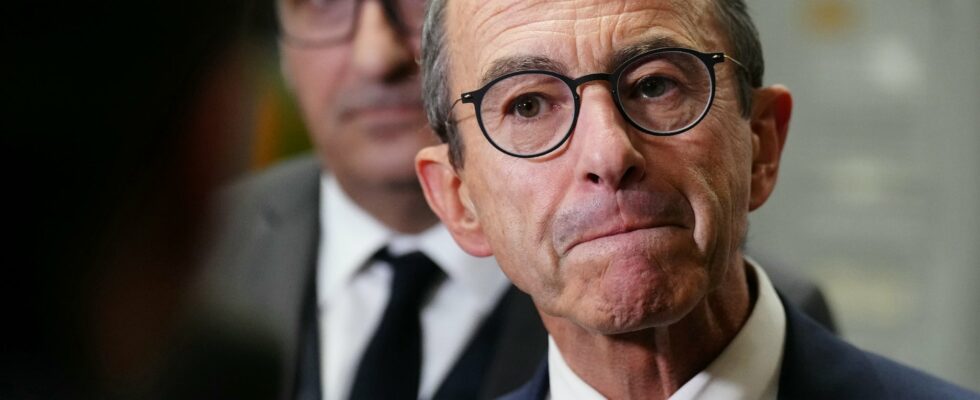January 2024. After the bitter vote on the immigration bill a month earlier, the Constitutional Council censored 32 articles on the form and three articles on the substance, out of the 86 that the text included. Among the proposals rejected by the Sages, we find some of the strictest measures of the text introduced by the Republicans during the parliamentary shuttle, such as the return deposit for foreign students, the establishment of annual migration quotas or the tightening of access to social benefits for foreigners. Bruno Retailleau, at the time president of the LR group in the Senate, had then put strong pressure on the government: “We must include all of the invalidated provisions in a specific legislative text as quickly as possible.”
Nine months later, here is the Vendéen at the head of the Ministry of the Interior, and with the stated desire to “take all means to reduce immigration in France”. And among the first measures envisaged by the new boss of Place Beauvau is one of the measures also censored by the Constitutional Council, on the form and not the substance: the “reestablishment of the offence of illegal residence”, as he stated on the TF1 set this Monday evening.
A clear European directive
The offence of illegal residence is the act of making it punishable by a fine or prison sentence to be on French territory without legal authorisation. This measure existed in French law until 2012, when it was abolished by the government of François Hollande. Although the former socialist president had promised to establish a clearer regularisation framework through the Valls circular, which defined the criteria for applying for a residence permit – time spent on French soil, seniority in work, promise of employment, etc. – this decision was in reality largely dictated by the European Union.
And in particular a law passed in 2008 in Brussels, the directive on the return of migrants, which requires Member States to implement everything in their power to help people in an irregular situation return to their country of origin before being able to take administrative sanctions against them. Subsequently, two decisions of the Court of Justice of the European Union have stated that no criminal sanction is possible on the simple basis of an irregular stay, even if administrative procedures for placement in a detention center or expulsion remain possible. And finally, a decision of the Court of Cassation has decided that it is impossible to place a foreigner in police custody solely for their irregular situation.
Possible heavy EU sanctions
Despite this relatively strict European legislative framework, reintroducing this offence of illegal residence has been a regular promise of the National Rally but also of the Republicans during elections in recent years. In the immigration bill, LR parliamentarians had thus adopted an amendment – with the support of former Interior Minister Gérald Darmanin – setting the penalty for this offence of illegal residence at a fine of 3,750 euros and a three-year ban from the territory. In the RN’s programme for the early legislative elections of 2024, the far-right party did not specify the penalty it wished to impose for this offence. But still during the examination of the immigration law, RN senator Christopher Szczurek had submitted an amendment – not adopted – proposing to make it punishable by a one-year prison sentence as well as a fine of 3,750 euros. This is the penalty that applied until 2012.
For the new head of Place Beauvau Bruno Retailleau, reintroducing this offence of illegal residence into French law is therefore proving to be a particularly complex process. While the Constitutional Council should not in principle rule on the substance of the matter, the problem would lie more with Brussels. The European Union, more specifically the Court of Justice, could impose sanctions and fines against France if it decided to pass such a law, and this as long as it does not return to compliance with EU law.
However, beyond the legal war of words that would be triggered, it would above all be the political symbol that would be difficult to assume for Michel Barnier, the self-proclaimed “European”, but also for President Emmanuel Macron. How can one want to assume European leadership, while going head-on against its legislation? Not to mention the reluctance of the left wing of Macronie to implement such a measure, judging it ineffective and useless. If this question clearly does not bother Bruno Retailleau, it risks quickly becoming more prevalent within his government.
